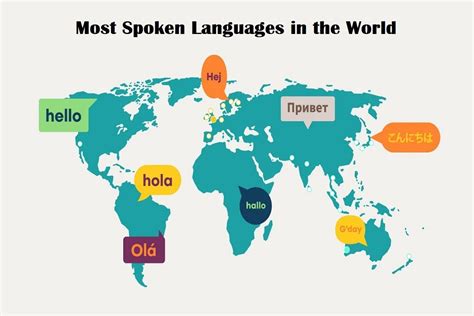The Evolving Landscape of Linguistic Careers
The field of linguistics is undergoing a remarkable transformation, fueled by technological advancements and a growing recognition of the importance of language in diverse industries. This evolution has opened up a vast array of lucrative and fulfilling career paths for individuals with a passion for language and communication.

According to the U.S. Bureau of Labor Statistics (BLS), the employment outlook for linguists is expected to grow by 17% from 2020 to 2030, a rate significantly faster than the average for all occupations. This surge in demand is primarily attributed to the increasing need for language professionals in fields such as healthcare, education, business, and government.
A Tapestry of Career Opportunities
The world of linguistics offers a diverse tapestry of career paths, each with its unique set of skills, responsibilities, and rewards. Here are some of the most sought-after linguistic careers:
Computational Linguist: Develops and applies computational models and techniques to analyze, process, and generate human language. Salary: \$126,830 per year (BLS)
Language Teacher: Transmits language knowledge and skills to students, fostering their fluency and cultural understanding. Salary: \$61,610 per year (BLS)
Speech-Language Pathologist: Assesses and treats individuals with speech, language, and cognitive disorders. Salary: \$79,120 per year (BLS)
Lexicographer: Compiles, edits, and publishes dictionaries and other reference works, capturing the meaning and usage of words. Salary: \$67,730 per year (BLS)
Translator and Interpreter: Facilitates communication between individuals who speak different languages, enabling cultural exchange and global collaboration. Salary: \$49,990 per year (BLS)
The “LinguaSphere”: Expanding Applications of Linguistics
The applications of linguistics extend far beyond traditional academic disciplines. The “LinguaSphere” encompasses a wide range of industries that leverage language-related skills and knowledge to drive innovation and enhance communication.
Healthcare: Linguists contribute to the design of medical devices, develop language-based therapies, and facilitate cross-cultural communication between healthcare providers and patients.
Business: Companies seek linguists to translate marketing materials, conduct international market research, and improve customer service in multilingual markets.
Government: Government agencies employ linguists for intelligence gathering, diplomacy, and the development of language-related policies.
Academia: Linguists teach, conduct research, and contribute to the advancement of linguistic knowledge and theory.
Infusing Language into Technology
The convergence of linguistics and technology has given rise to a new frontier of career opportunities. “TechnoLinguistics” professionals combine linguistic expertise with technical skills to develop innovative products and services that enhance human-computer interaction.
Natural Language Processing: Linguists work alongside computer scientists to develop software that enables machines to understand and generate human language.
Machine Translation: Linguists leverage linguistic knowledge to refine machine translation algorithms, improving the accuracy and quality of translated texts.
Voice User Interfaces: Linguists design and test voice-controlled interfaces, ensuring that they are both user-friendly and efficient.
Innovative Applications: Expanding the Scope of Linguistics
The ingenuity of linguists knows no bounds. Beyond traditional applications, they are exploring novel ways to leverage their expertise:
Language Forensics: Linguists apply linguistic principles to analyze spoken and written language in legal contexts, assisting in investigations and trials.
Language Revitalization: Linguists work with indigenous communities to document and preserve endangered languages, fostering cultural heritage and linguistic diversity.
Language and AI: Linguists collaborate with artificial intelligence researchers to develop AI systems that can learn, understand, and communicate in natural language.
Table 1: Average Salaries for Linguists in Various Fields
| Field | Salary |
|---|---|
| Computational Linguistics | \$126,830 |
| Language Teacher | \$61,610 |
| Speech-Language Pathologist | \$79,120 |
| Lexicographer | \$67,730 |
| Translator and Interpreter | \$49,990 |
Table 2: Top Employers of Linguists
| Employer | Location | Industry |
|---|---|---|
| Mountain View, CA | Technology | |
| Microsoft | Redmond, WA | Technology |
| Amazon | Seattle, WA | Technology |
| United Nations | New York, NY | Government |
| Apple | Cupertino, CA | Technology |
Table 3: Skills Required for Linguistic Careers
| Skill | Description |
|---|---|
| Language Proficiency | Fluency in multiple languages, both written and spoken |
| Analytical Thinking | Ability to break down complex language into its components and identify patterns |
| Communication Skills | Effective verbal and written communication skills for presenting and explaining linguistic concepts |
| Research Abilities | Ability to conduct thorough research, evaluate sources, and draw conclusions |
| Cultural Sensitivity | Understanding of diverse cultures and their influence on language |
Table 4: Educational Pathways to Linguistic Careers
| Degree | Level | Duration |
|---|---|---|
| Bachelor’s Degree in Linguistics | Undergraduate | 4 years |
| Master’s Degree in Linguistics | Graduate | 2 years |
| Doctorate in Linguistics | Graduate | 5-7 years |
Conclusion
The field of linguistics offers a myriad of rewarding career opportunities for individuals with a passion for language and communication. From traditional academic disciplines to cutting-edge technologies, linguists are in high demand in diverse industries. The “LinguaSphere” expands the boundaries of linguistics, creating new applications and career paths. By embracing the power of language and leveraging innovative technologies, linguists play a vital role in fostering communication, understanding, and innovation in our ever-evolving world.
